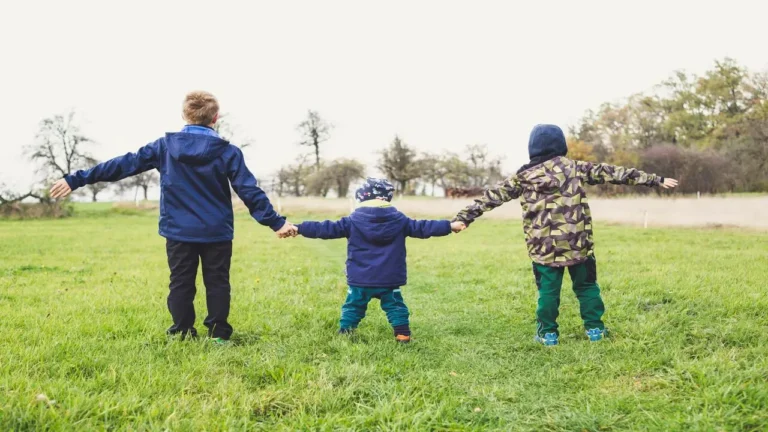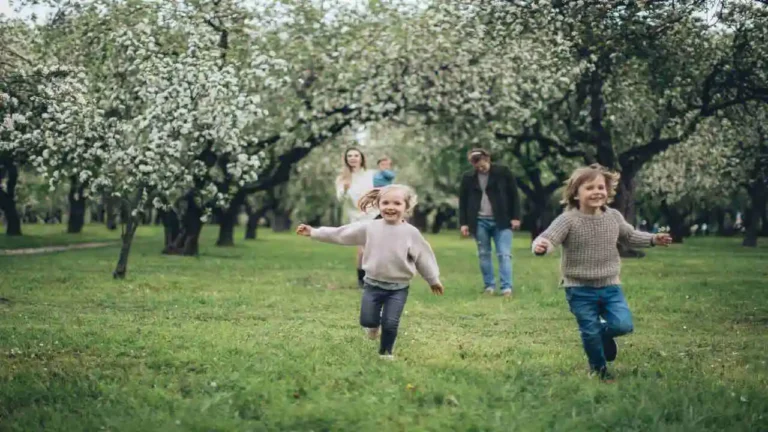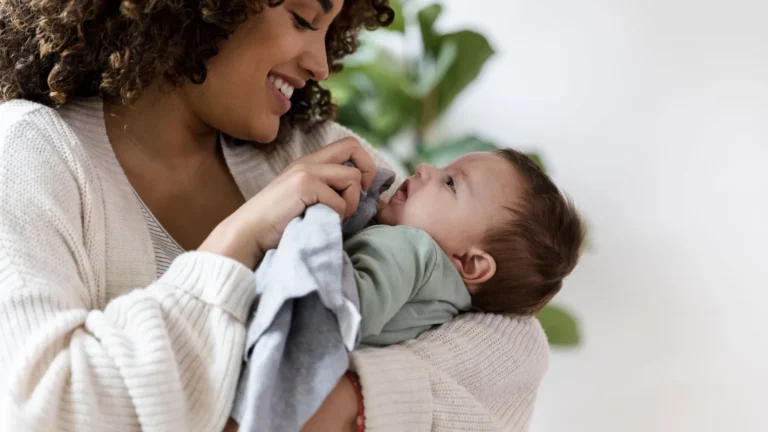The Unseen Connection Between Pets and Your Child’s Emotional Growth!
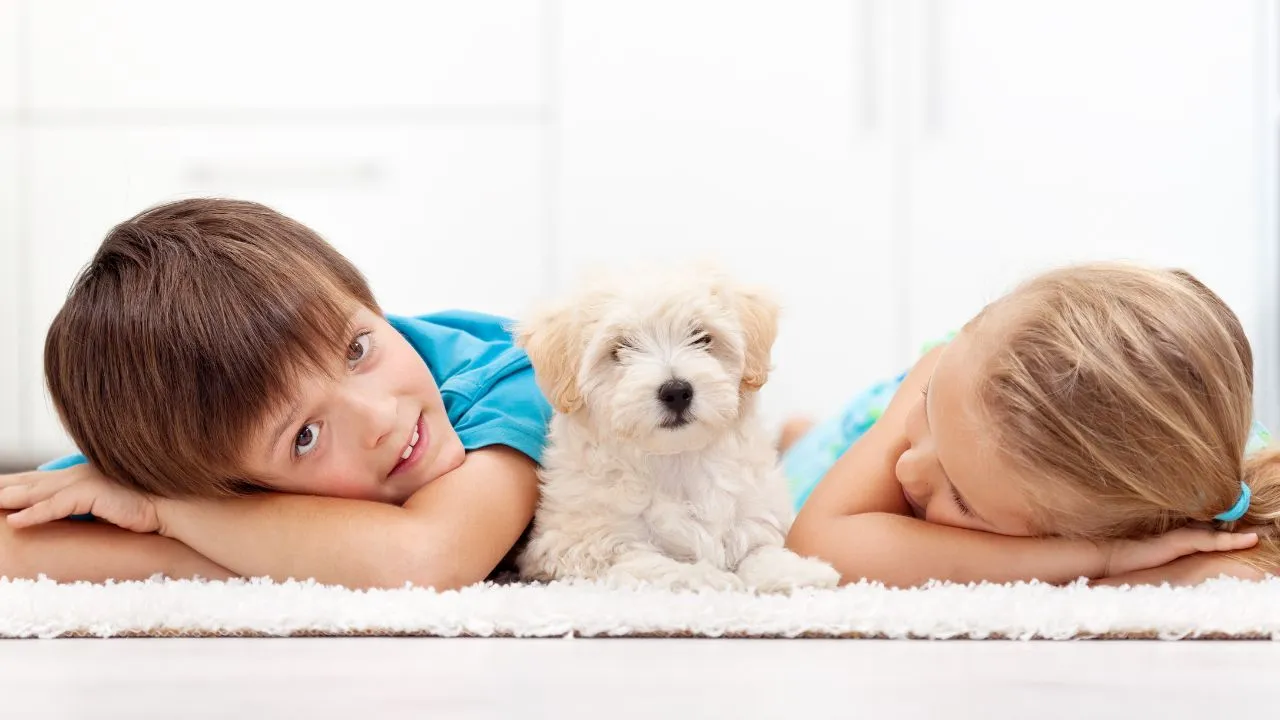
Kids Benefit from Pet Ownership is an undeniable truth that any pet-loving parent can attest to. Have you ever pondered the extraordinary impact owning pets can have on your children’s lives?
Our expert guide explores the fascinating world of companion pets, unlocking powerful advantages, responsibilities, and challenges for kids.
Discover the secrets to finding the perfect furry, feathery, or scaly companion for your family and watch your children thrive. Join us on this heartwarming adventure, and prepare to be amazed by the paws-itive transformations!
What Are the Benefits of Having a Pet Animal for Kids?
Getting a pet can be one of the best decisions for your child. Pets aren’t just cute—they bring a ton of benefits that help kids grow in so many ways.
Pets are more than just animals—they’re companions that help kids grow emotionally, socially, and physically. If you’re thinking about getting a pet, it could be one of the best things you do for your child’s development.
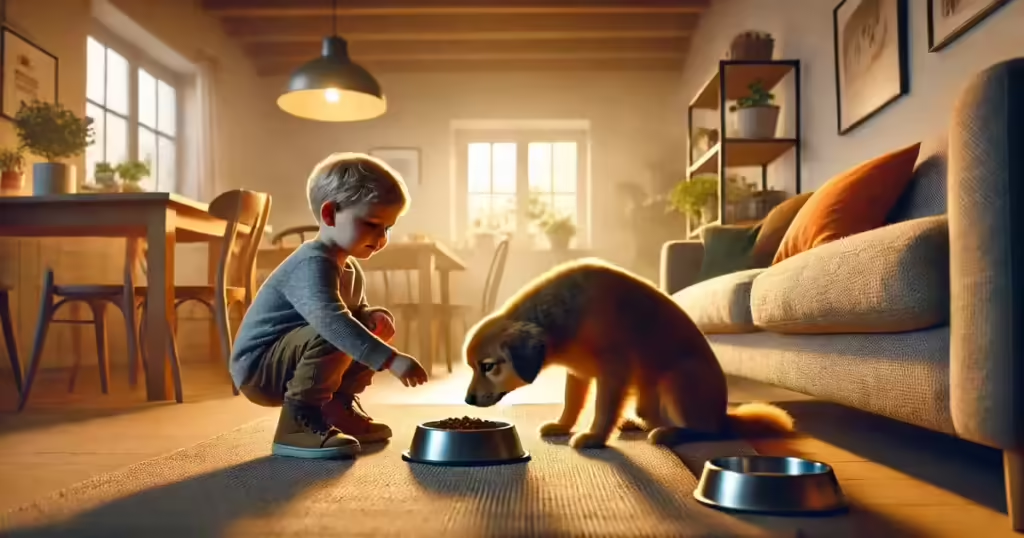
Do Pets Teach Kids Responsibility?
Yes, pets absolutely teach kids responsibility, and they do it in a very hands-on way. When a child is tasked with caring for a pet, they learn what it means to be responsible for another life.
This isn’t just about feeding the pet; it’s about ensuring their well-being, understanding their needs, and recognizing that their actions directly impact their pet’s health and happiness.
Pets provide a practical, everyday opportunity for kids to learn about responsibility in a way that’s engaging and rewarding. These lessons not only help in their current lives but also prepare them for future responsibilities as they grow older.
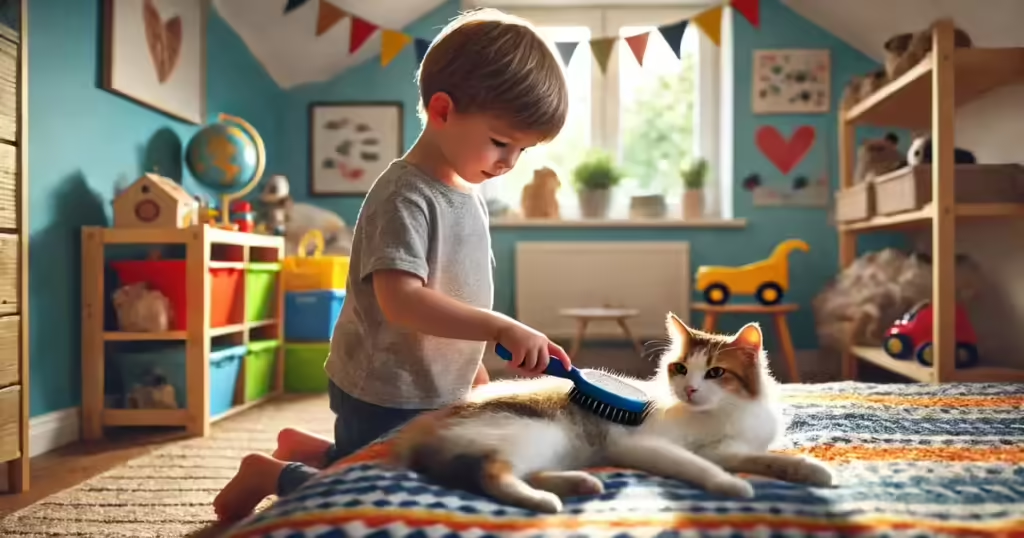
Choosing the Right Family Pet for Your Children
When selecting a pet, consider factors like your family’s lifestyle, available space, and any allergies or special needs. Weigh the pros and cons of different pets, such as dogs, cats, fish, rodents, and reptiles. Be sure to consider the needs of both your children and the animal for a harmonious match.
Preparing Your Home and Family for a New Pet
To create a pet-friendly environment, establish routines and boundaries, and involve your children in the preparation process. Set up designated spaces for the pet, like sleeping and eating areas, and provide necessary supplies like toys and food. Teaching children about pet care, pet health, and safety is essential to ensure a smooth transition.
Navigating Challenges and Obstacles of Pet Ownership
Families with pets may face challenges, such as time management, behavioral issues, and coping with illness or loss. To overcome these obstacles, seek support from experienced pet owners, consult professional resources, or consider animal-assisted therapy for children with special needs.
The Role of Pets in Teaching Children about Life and Loss
Pets can help children understand life, aging, and mortality. They can also teach children about attachment, emotional well-being, and coping skills. When dealing with the loss of a pet, encourage open communication and provide emotional support for your child.
The Lasting Impact of Pet Ownership on Children’s Development
Pet ownership offers a wealth of benefits for children, from teaching responsibility to promoting emotional well-being and mental health.
By considering your family’s needs and preparing for the challenges of pet ownership, you can create a nurturing environment that fosters growth and development for both your children and your new furry, feathered, or scaly friend.
The Importance of Parental Involvement in Pet Care
Parents play a crucial role in ensuring a successful pet ownership experience for their children. By actively participating in the decision-making process, caring for the pet, and guiding their children through the responsibilities and challenges, parents can strengthen family bonding and help their kids develop essential life skills.
Pet Adoption: A Rewarding Option for Families
Considering pet adoption from shelters or rescue organizations can be a fulfilling way to welcome a new pet into your family. By adopting, you are not only providing a loving home to an animal in need but also teaching your children about the importance of animal welfare and compassion for all living beings.

Why Are Pets Good for Mental Health?
Pets do wonders for our mental health. They aren’t just cute companions—they’re like little therapists on four legs. Here’s how they help:
Pets of all natures bring a lot of joy and comfort into our lives. They help reduce stress, keep us active, and make us feel loved. If you’ve ever thought about getting a pet, these mental health benefits are just one more reason to do it.
Final Thoughts
The experience of pet ownership can have a profound and lasting impact on children’s lives, shaping their values, emotional resilience, and interpersonal relationships.
The bond between a child and their pet can be a source of joy, comfort, and growth, creating cherished memories that last a lifetime.
Kids benefit from pet ownership in numerous ways, from emotional support and stress reduction to learning essential life skills.
As a parent, your involvement and guidance can help your children make the most of this experience, nurturing their development and creating a strong foundation for their future.
By embracing the joys and responsibilities of pet ownership, your family can create lasting bonds and memories with your beloved animal companions.
What kinda Pet will You Get? 🙂


